How to collect anonymous employee feedback with Google Forms?

Ever wondered how to unlock the treasure trove of anonymous employee feedback? Well, fear not, for we've got an ingenious solution that'll help you unlock the secret vault of your employees’ opinions while keeping their identities under wraps.
As the great Oscar Wilde once said, "Man is least himself when he talks in his own person. Give him a mask, and he will tell you the truth." And boy, oh boy, can we relate to that sentiment in the realm of employee feedback!
Sometimes, the fear of repercussions or awkward confrontations can stifle the genuine thoughts that employees have about their workplace. But Anonymous Google Forms is here to save the day.
So, grab a cup of coffee, settle into your comfiest chair, and let's explore how you can unlock the full potential of anonymous employee feedback using the trusty ally that is Google Forms.
Table of contents:-
- What is an anonymous survey?
- When to use anonymous surveys?
- Are Google Forms anonymous?
- Does limiting form responses affect anonymity?
- How to make a Google form survey anonymous?
- How to test that your Google Form accepts anonymous responses?
- Drawbacks of using Google Forms to get anonymous feedback
- Why should you prefer CultureMonkey, an anonymous employee feedback tool over Google Forms?
- Conclusion
- FAQs
What is an anonymous survey?
Picture this: You're the captain of a ship navigating through the turbulent waters of your company's success. It's a cloudy night, and you need guidance. Now, imagine having a magical lantern that reveals hidden reefs and treacherous currents without exposing your ship to danger. That's what an anonymous survey does for employers.
At its core, it's a tool that allows you to gather anonymous responses from your employees without revealing their identities. Employees can share their thoughts openly, addressing concerns, praising achievements, or suggesting improvements, all without fear of retribution. It's like having a backstage pass to your employees' minds, unfiltered and unmasked.
Comparing it to a non-anonymous survey is like comparing apples to oranges. With the latter, employees might hold back their true feelings, worried about potential consequences. But with an anonymous survey, they can speak their minds freely, giving you valuable insights into your organization's health.
In a world where employee engagement and satisfaction are paramount, anonymous surveys are your secret weapon. They foster trust, reveal hidden issues, and ultimately lead your ship toward calmer, more prosperous waters. Embrace the power of anonymous forms or surveys, and watch your business set sail to success.
When to use anonymous surveys?
In a world where open and honest communication is the key to success, anonymous surveys are your trusty companions. Use them strategically in the right moments, and you'll uncover hidden gems of insight that can help steer your ship toward the shores of progress.
When honesty trumps formality
There are moments in every organization when you need unvarnished truth, not just polite nods. Anonymous surveys are your go-to in such situations. If you're dealing with sensitive issues or controversial topics, anonymity encourages people to be more honest.
During times of change
Change is often met with resistance. Implementing new policies, procedures, or systems can stir up anxiety among your workforce. Anonymous surveys allow employees to voice their concerns without fear of repercussions, helping you smoothen the transition.
Employee feedback on management
Wondering how your management team is doing? Instead of relying on whispers and rumors, use anonymous surveys to gather honest feedback about your leaders. It's a fantastic way to improve leadership and boost morale.
Handling workplace conflicts
When conflicts or tensions brew in your organization, you need to get to the root of the problem without making it worse. Anonymous surveys can uncover underlying issues without adding fuel to the fire.
To gauge job satisfaction
Employee satisfaction is the heart and soul of your company's success. Use anonymous surveys regularly to gauge how satisfied your team is with their jobs, and identify areas for improvement.
Post-training evaluations
After training sessions or workshops, anonymous surveys are a fantastic tool for assessing their effectiveness. Participants can provide candid feedback without feeling pressured to be overly positive.
During crisis situations
Whether it's a pandemic or any other crisis, employees' concerns and needs evolve rapidly. Anonymous surveys can help you stay in tune with their thoughts and concerns, guiding your crisis response strategies.
Diversity and inclusion initiatives
To foster a diverse and inclusive workplace, you need to understand how different groups within your organization experience it. Anonymous surveys can provide a safe space for employees to share their perspectives on diversity and inclusion.
Periodic check-ins
Regular anonymous surveys should be a part of your organizational culture. They keep the channels of communication open, help identify evolving issues, and show your commitment to employee or customer satisfaction.
Anonymous reporting of misconduct
When you suspect or receive reports of workplace misconduct, using anonymous surveys is a discreet way for employees to share their observations without fear of retaliation. It's an essential tool for ensuring a safe and ethical work environment.
Product development and improvement
Anonymous surveys can be a treasure trove of information when you're fine-tuning your products or services. Employees can provide candid feedback on what works, what doesn't, and what they'd like to see improved.
Preparing for performance reviews
Before conducting performance reviews or appraisals, use anonymous surveys to gather input from both employees and managers. This allows you to identify areas for improvement and tailor your feedback to better address individual needs.
Anonymous suggestions and innovations
Your employees and customers may have fantastic ideas for improving processes, products, or services. Encourage them to share their innovative thoughts through anonymous surveys, giving credit where it's due while maintaining confidentiality.
Gathering testimonials and success stories
If you're looking to collect glowing testimonials or success stories from your customers or employees, use anonymous surveys to ensure their privacy. You can then follow up with participants for permission to use their feedback in your marketing materials.
Are Google Forms anonymous?
So, are Google Forms truly anonymous? The answer is a resounding yes! When you disable the collection of email addresses, the veil of secrecy descends upon your form, ensuring that respondents can share their thoughts without revealing their identities.
Google Forms won't reveal who said what, keeping everything hush-hush and giving your employees the freedom to express themselves openly. It's like a secret society of feedback where honesty reigns supreme. So rest assured, my curious comrade, and unleash the power of anonymous employee feedback with Google Forms.
Your employees' identities shall remain hidden, allowing their thoughts to flow freely and unencumbered. Embrace the beauty of anonymity and let the truth be heard!
Does limiting form responses affect anonymity?
The good news is that limiting form responses does not compromise the anonymity of your Google Forms. When you set a response limit, it merely puts a cap on the number of submissions the form can receive.
Think of it as controlling the influx of feedback rather than revealing any identities. The anonymity factor remains intact, allowing employees to share their thoughts without fear. Whether you choose to limit responses to a specific number or leave it open-ended, the cloak of secrecy remains firmly in place.
So, go ahead and customize those response limits as per your needs. Keep the anonymity alive and let the feedback flow freely, for the power of Google Forms shall protect the identities of your contributors throughout the journey.
How to make a Google form survey anonymous?
Now that we're all ears and ready to unravel the secrets of gathering anonymous employee feedback, let's delve into the step-by-step process of using Google Forms to accomplish this noble task. And the best part? It won't cost you a single penny!
Step 1: Set the stage
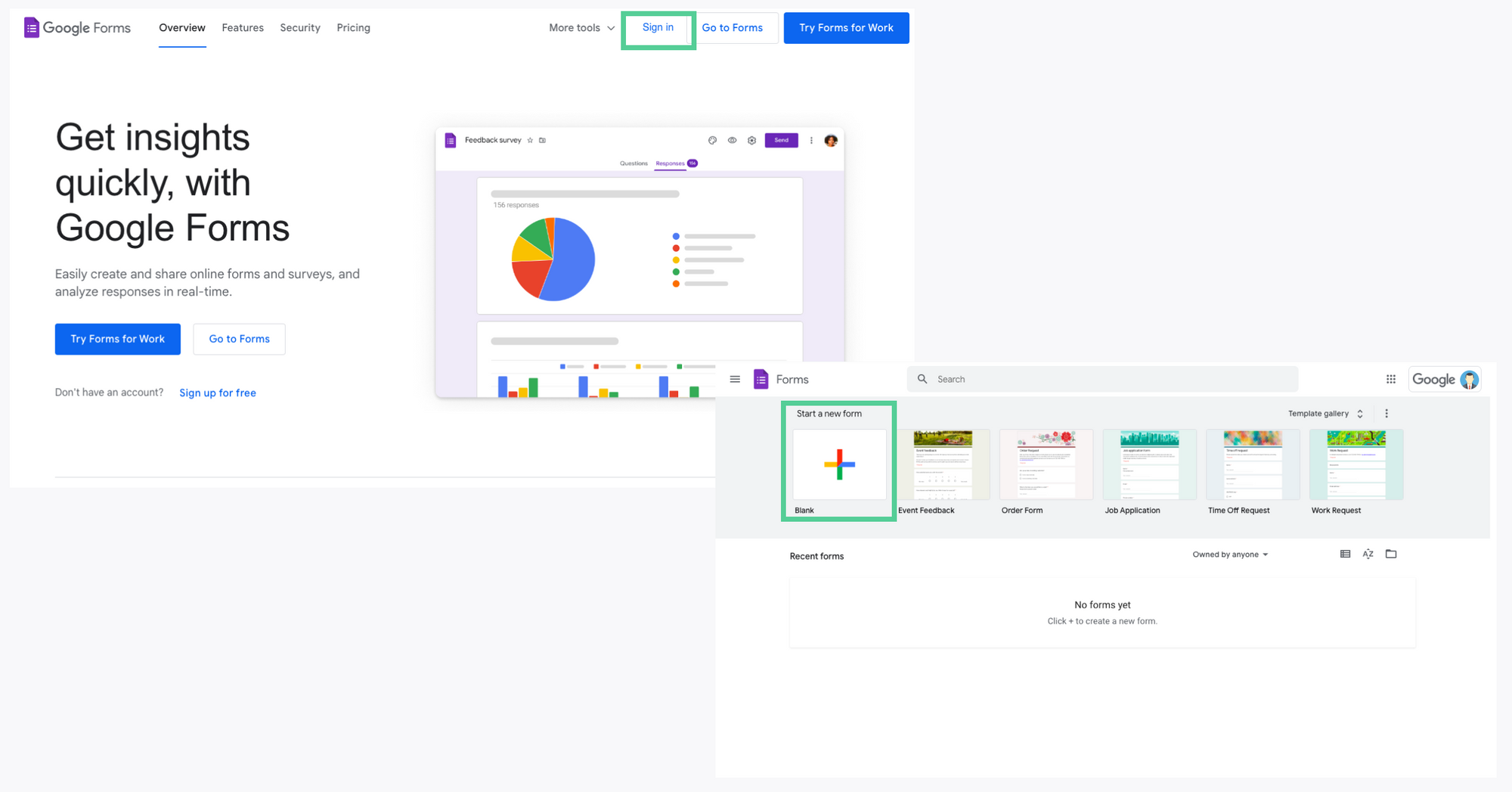
First things first, open up your Google account and head over to Google Forms. If you don't have an account, fret not! Creating one is as easy as pie. Once you're in, click on the "+" button to create a new form.
Step 2: Craft your questions
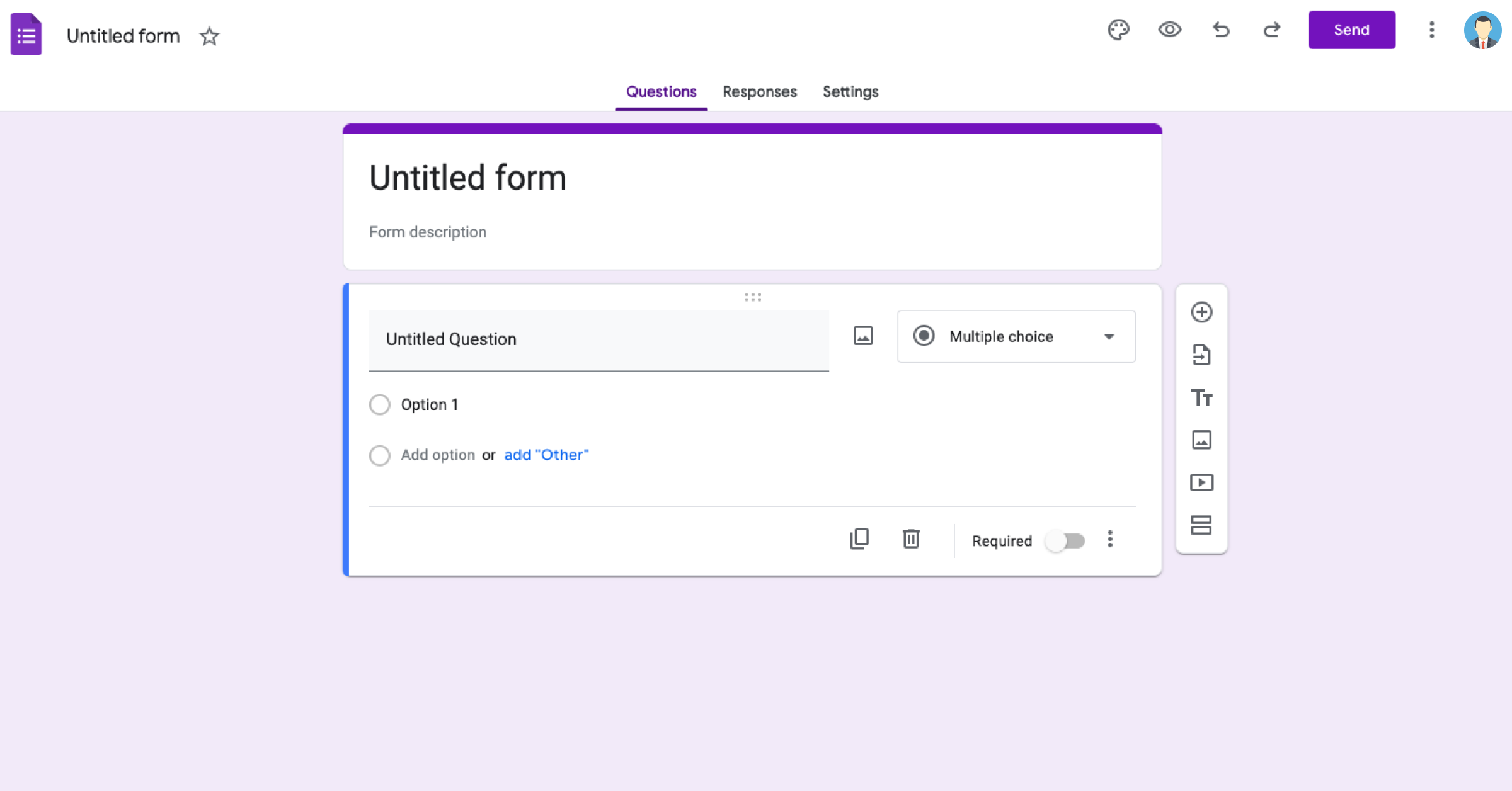
Now comes the fun part! Think about the kind of feedback you're seeking and create your survey questions accordingly. Keep them clear, concise, and open-ended to encourage honest feedback. Remember, the goal here is to make employees feel comfortable expressing their thoughts without any fear of judgment.
Step 3: Ensure anonymity
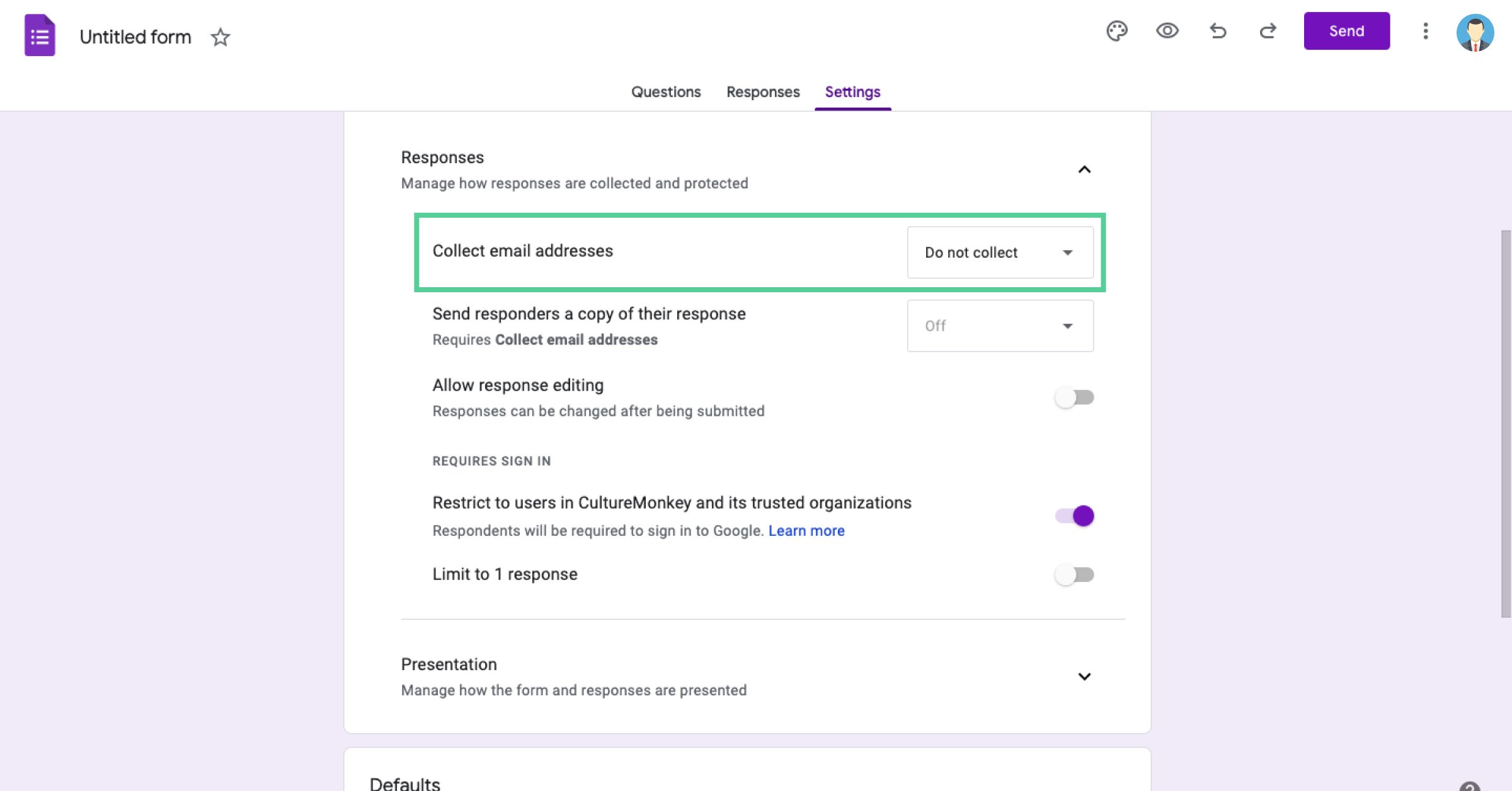
To guarantee anonymity, go the extra mile and tweak the settings. Click on the settings cogwheel and select the "Responses" tab. Toggle off the "Collect email addresses" option to make sure responses remain incognito.
Step 4: Spruce it up
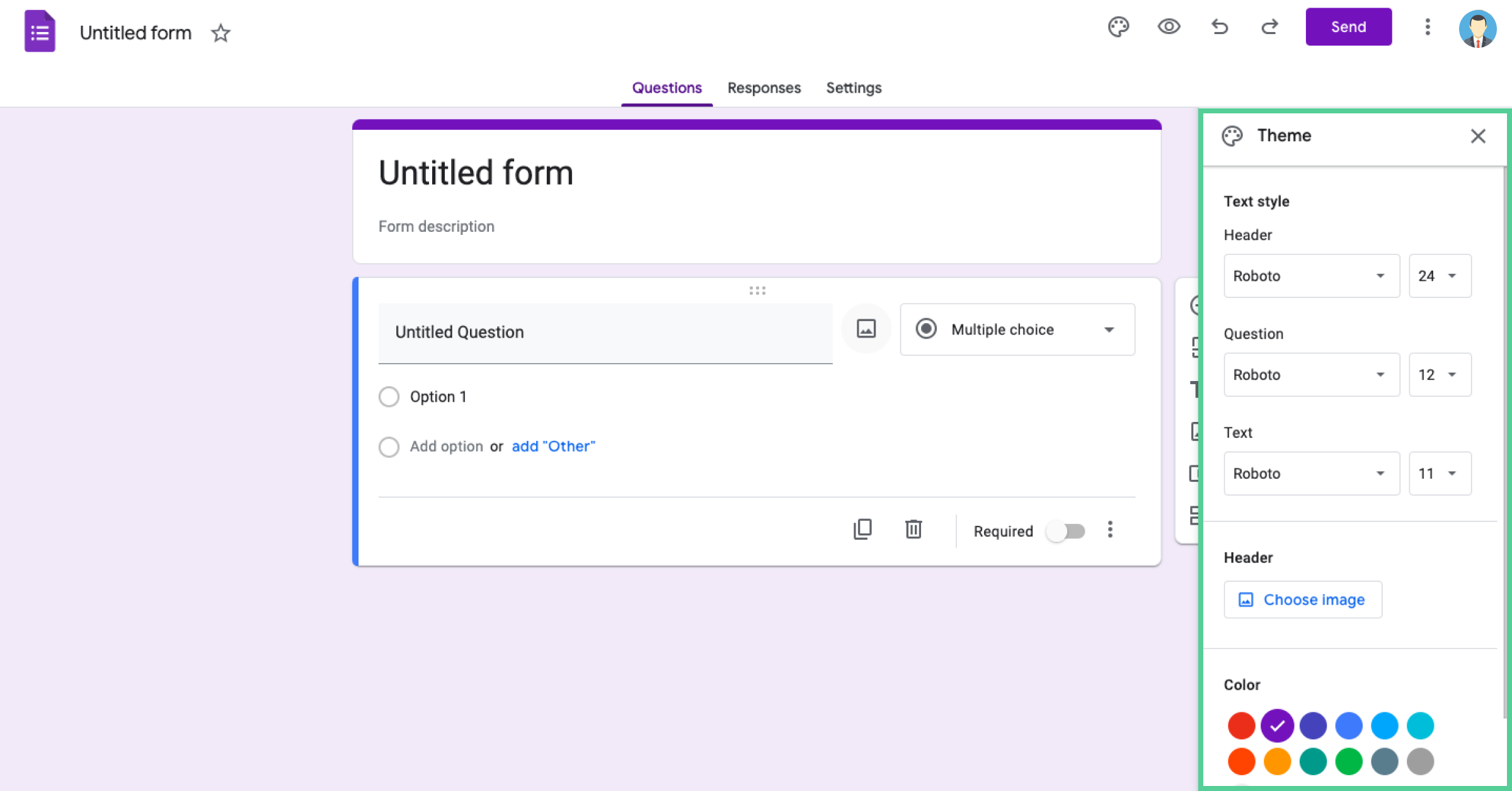
Make your form visually appealing by customizing the theme, adding images or videos, and even incorporating your company logo. A little extra effort in the aesthetics department can go a long way in engaging employees and enticing them to participate.
Step 5: Distribute and collect
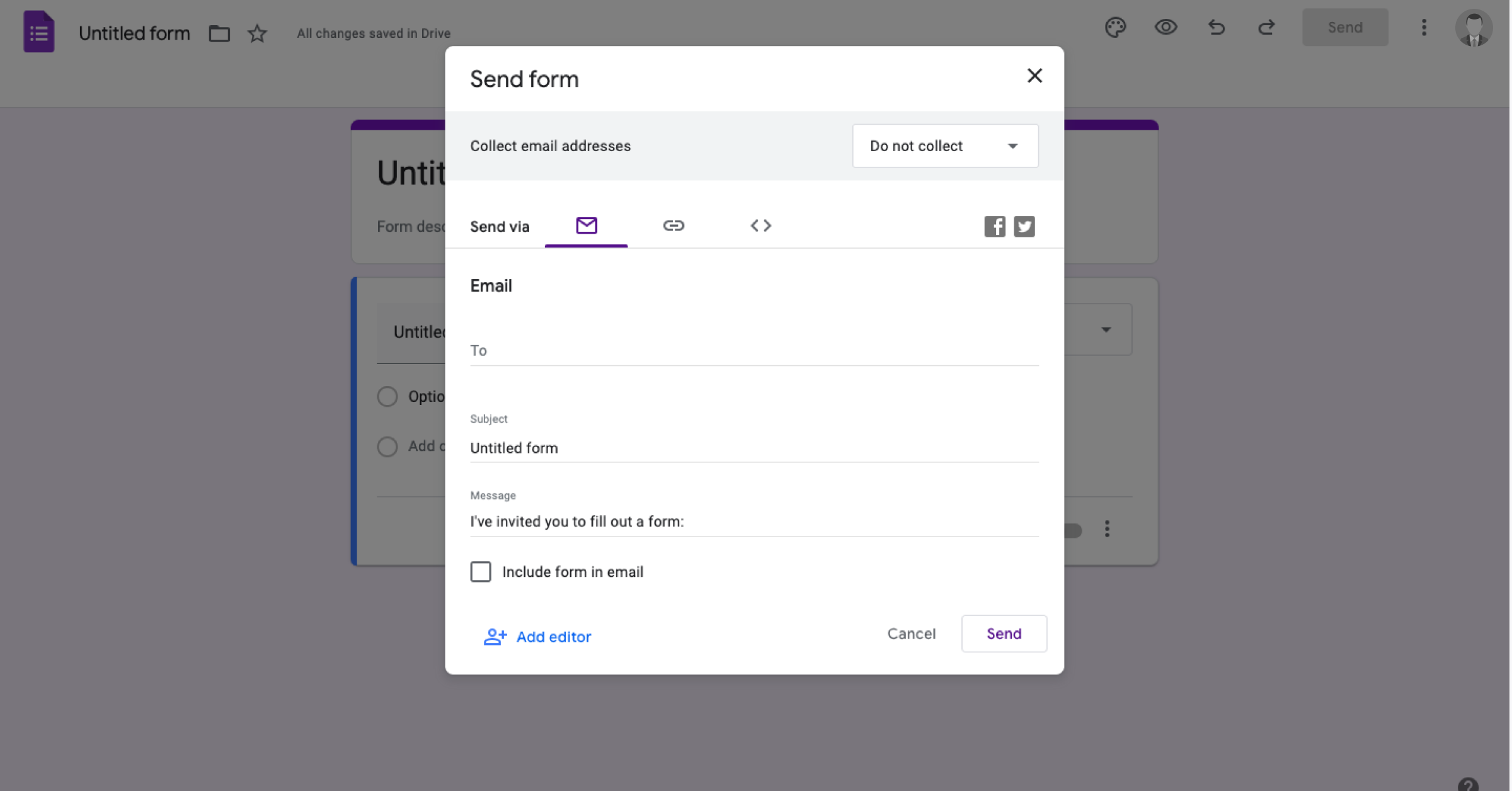
Once your masterpiece is ready, share the form with your employees. You can do this by simply sending them the form link via email or embedding it on your company's intranet. Sit back, relax, and watch as the anonymous feedback pours in!
And voilà! You've successfully harnessed the power of Google Forms to gather anonymous employee feedback without spending a dime. Now, go forth and embrace the valuable insights that await you, my adventurous friend. Remember, the truth shall set you free!
How to test that your Google Form accepts anonymous responses?
Here are 8 simple steps for you to test if your Google Form accepts anonymous responses accurately.
- Go to Google Forms.
- Open the form you want to test by double-clicking it.
- Click the "Send" button at the top right of the screen.
- Click the link tab, then copy the link by clicking "Copy."
- Open a New Incognito Window on Google Chrome or another browser where you aren't signed into your Google account.
- Paste the copied link to navigate to your Google Form.
- Fill out the form in the Incognito tab.
- Return to Google Forms, where you're logged into Google, and check your Responses tab to see the information collected from your Google Form in the test.
Drawbacks of using Google Forms to get anonymous feedback
While anonymous Google Form may be a wonderful tool for collecting anonymous surveys, it's not without its limitations. Let's take a closer look at some of the drawbacks you should keep in mind:
Limited customization: While Google Forms allows for basic customization, it may not provide the level of branding and visual customization that some organizations desire. If you're looking for a highly customized and visually appealing survey experience, you may find the options limited.
Limited question types: While Google Forms offers a decent range of question types, it may not have the extensive array that you may find in specialized survey tools. This could limit the type of questions you can ask and potentially affect the depth of insights you can gather.
Lack of advanced features: Google Forms, being a free tool, doesn't offer advanced features such as skip logic, advanced reporting, or integrations with other tools. If you require advanced functionality for your feedback process, you may need to explore other dedicated survey platforms.
Limited data analysis: While Google Forms provides basic summary statistics and allows you to export responses to a spreadsheet, its analysis capabilities are relatively limited. If you're looking for robust data analysis features, you may need to transfer the data to another tool for in-depth analysis.
Potential for spam or misuse: As Google Forms surveys are typically shared via a link, there's a possibility of the link being shared outside the intended audience. This could lead to unauthorized individuals submitting responses or potential misuse of the survey link.
Data security: While Google takes measures to ensure the security of data stored on its platforms, there's always a potential risk associated with storing sensitive employee feedback data on any third-party platform. Organizations handling sensitive data should consider their data security and privacy policies.
Limited reporting capabilities: Google Forms' reporting options are relatively basic. You may find it challenging to generate complex and customized reports, making it harder to derive deeper insights from the collected data.
Limited question branching: Google Forms provides basic question branching, but it may not offer the depth and complexity of logic that some advanced survey tools like CultureMonkey do. This limitation can be a drawback if you need intricate question flow and conditional logic to create a more personalized survey experience.
Limited collaboration features: While Google Forms allows multiple users to collaborate on creating survey from a blank form, it may lack the advanced collaboration and workflow features like CultueMonkey that some organizations require. For complex feedback processes involving multiple team members, other dedicated survey tools might offer more robust collaboration capabilities.
While Google Forms offers a convenient and cost-effective solution for collecting anonymous feedback, it's important to weigh these drawbacks against your specific requirements.
Why should you prefer CultureMonkey, an anonymous employee feedback tool over Google Forms?
While Google Forms is a popular tool for collecting feedback, there's a magical alternative that takes employee engagement to a whole new level. Enter CultureMonkey, an anonymous feedback tool that offers a host of features designed to measure, improve, and nurture workplace culture.
Let's explore why CultureMonkey should be your preferred choice.
Pulse survey: The heartbeat of engagement
CultureMonkey's pulse surveys capture the essence of your employees' sentiments in real-time. With a vast selection of anonymous templates, you gain insights into challenges, suggestions, and overall employee satisfaction. It's like having a crystal ball that reveals the pulse of your workforce.
Life cycle surveys: Shaping the employee journey
From onboarding to exit interviews, CultureMonkey covers the entire employee life cycle. With surveys at each stage, you can identify pain points, enhance retention, and shape a memorable employee experience. It's like having a time-travelling device that lets you weave magic into every step.
Anonymous employee feedback: A magical cloak of anonymity
CultureMonkey transforms anonymous feedback into anonymous conversations, fostering open dialogue without revealing identities. It provides a safe space for honest conversations, encouraging employees to share their thoughts freely.
Employee feedback sentiment analysis: Unveiling the true emotions
CultureMonkey employs sentiment analysis, deciphering the sentiment behind employee responses. Through AI-powered analysis, you gain a deeper understanding of their emotions and experiences.
Manager effectiveness surveys: Nurturing leadership skills
Leadership plays a crucial role in engagement, and CultureMonkey's manager effectiveness surveys assess their impact. Identify areas for improvement and development opportunities, empowering your managers to excel.
When it comes to anonymous employee feedback, CultureMonkey is the key that unlocks a world of engagement and insight. Its range of features, user-friendly interface, and integration capabilities set it apart from simple survey tools like Google Forms.
Conclusion
So yes, while Google Forms is a convenient option for gathering anonymous employee feedback, CultureMonkey takes the experience to a whole new level.
With its pulse surveys, multilingual capabilities, anonymous conversations, and advanced features like sentiment analysis and AI-powered recommendations, CultureMonkey offers a comprehensive solution for understanding and improving employee engagement.
It goes beyond the limitations of Google Forms, providing a user-friendly interface, integration with HRMS tools, and in-depth reporting to empower organizations in their journey towards a positive workplace culture.
So, if you're looking to unlock the true potential of anonymous employee feedback and create a thriving work environment, CultureMonkey is your enchanting companion on this magical quest.
FAQs
1. Can I keep employee feedback anonymous with Google Forms?
Yes, Google Forms allows you to collect anonymous employee feedback. By disabling the option to collect email addresses, respondents can provide their input without revealing their identities, ensuring confidentiality and promoting honest responses.
2. How can I ensure the anonymity of employee feedback on Google Forms?
To ensure anonymity, disable the "Collect email addresses" option in Google Forms. By doing so, respondents won't be required to provide any identifying information, maintaining their privacy and encouraging them to share their thoughts openly and honestly.
3. Can I track individual responses in Google Forms if the feedback is anonymous?
No, when you collect anonymous feedback with Google Forms, individual anonymous responses cannot be tracked or linked to specific respondents. This helps create a safe and confidential space for employees to share their opinions without fear of repercussions.
4. Is it possible to analyze anonymous employee feedback on Google Forms?
Yes, Google Forms provides tools to analyze the collected data, even if the feedback is anonymous. You can generate visualizations, charts, and reports based on the responses to gain insights and identify trends or areas for improvement within your organization.
5. Are there any limitations to using Google Forms for anonymous employee feedback?
While Google Forms offers a convenient and free solution for collecting anonymous employee feedback, it may lack some advanced features found in dedicated anonymous feedback tools. Consider using specialized employee feedback platforms like CultureMonkey to access additional functionalities, such as sentiment analysis, multilingual surveys, and manager effectiveness surveys.
6. Does Google Forms reveal your identity?
Fear not, Google Forms respects your privacy! When set up correctly, it won't reveal your identity. By disabling the "Collect email addresses" option in the settings, you ensure that your responses remain anonymous. Google Forms won't spill the beans about who you are. So, feel free to share your thoughts, feedback, or opinions without any privacy concerns.
7. Does Google Forms collect email addresses anonymously?
Absolutely, Google Forms can be your trusty guardian of anonymity. When you uncheck the "Collect email addresses" option in the settings, it ensures that respondents' email addresses stay incognito. This means you can gather responses without having to worry about collecting email data. So your respondents can provide feedback while keeping their email addresses safely out of sight.
8. Is it possible for Google Forms to be anonymous?
Indeed, Google Forms can be your secret keeper, allowing you to conduct truly anonymous surveys. By deselecting the "Collect email addresses" option in the form settings, you ensure that respondents remain anonymous. Google Forms won't pry into personal details, giving you the power to gather candid feedback without revealing anyone's identity.
